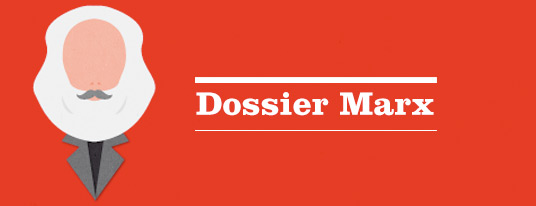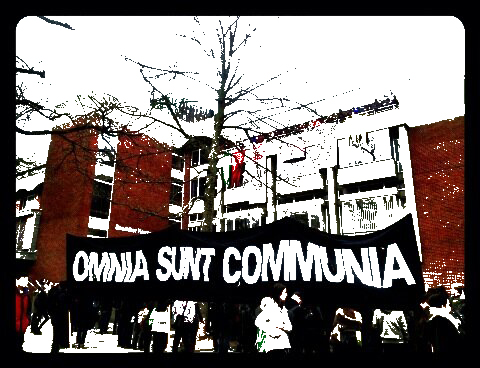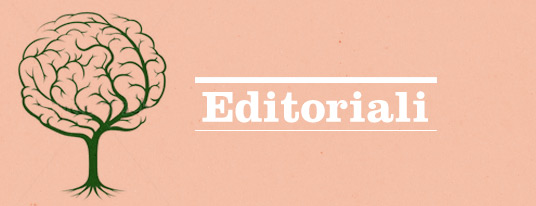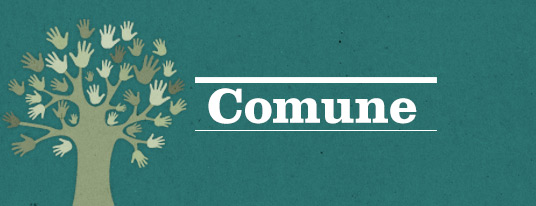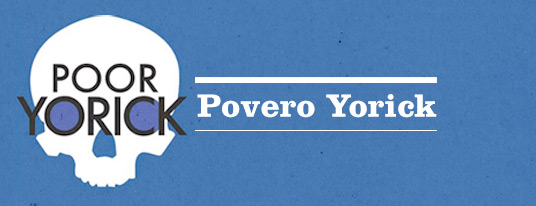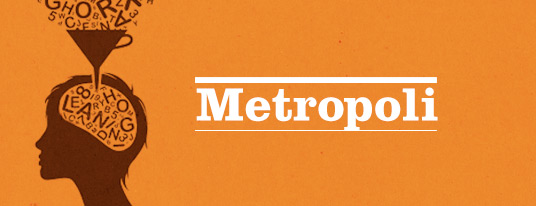Segnaliamo questa intervista di Roar Magazine in cui David Harvey affronta i decisivi temi dell’organizzazione , delle strategie di lotta e della crisi delle sinistre nel nostro tempo.
***
David Harvey, one of the leading Marxist thinkers of our times, sits down with the activist collective AK Malabocas to discuss the transformations in the mode of capital accumulation, the centrality of the urban terrain in contemporary class struggles, and the implications of all this for anti-capitalist organizing.
AK Malabocas: In the last forty years, the mode of capital accumulation has changed globally. What do these changes mean for the struggle against capitalism?
David Harvey: From a macro-perspective, any mode of production tends to generate a very distinctive kind of opposition, which is a curious mirrored image of itself. If you look back to the 1960s or 1970s, when capital was organized in big corporatist, hierarchical forms, you had oppositional structures that were corporatist, unionist kinds of political apparatuses. In other words, a Fordist system generated a Fordist kind of opposition.
With the breakdown of this form of industrial organization, particularly in the advanced capitalist countries, you ended up with a much more decentralized configuration of capital: more fluid over space and time than previously thought. At the same time we saw the emergence of an opposition that is about networking and decentralization and that doesn’t like hierarchy and the previous Fordist forms of opposition.
So, in a funny sort of way, the leftists reorganize themselves in the same way capital accumulation is reorganized. If we understand that the left is a mirror image of what we are criticizing, then maybe what we should do is to break the mirror and get out of this symbiotic relationship with what we are criticizing.
In the Fordist era, the factory was the main site of resistance. Where can we find it now that capital has moved away from the factory floor towards the urban terrain?
First of all, the factory-form has not disappeared—you still find factories in Bangladesh or in China. What is interesting is how the mode of production in the core cities changed. For example, the logistics sector has undergone a huge expansion: UPS, DHL and all of these delivery workers are producing enormous values nowadays.
In the last decades, a huge shift has occurred in the service sector as well: the biggest employers of labor in the 1970s in the US were General Motors, Ford and US Steel. The biggest employers of labor today are McDonalds, Kentucky Fried Chicken and Walmart. Back then, the factory was the center of the working class, but today we find the working class mainly in the service sector. And why would we say that producing cars is more important than producing hamburgers?
Unfortunately the left is not comfortable with the idea of organizing fast-food workers. Its picture of the classical working class doesn’t fit with value production of the service workers, the delivery workers, the restaurant workers, the supermarket workers.
The proletariat did not disappear, but there is a new proletariat which has very different characteristics from the traditional one the left used to identify as the vanguard of the working class. In this sense, the McDonalds workers became the steel workers of the twenty-first century.
If this is what the new proletariat is about, where are the places to organize resistance now?
It’s very difficult to organize in the workplaces. For example, delivery drivers are moving all over the place. So this population could maybe be better organized outside the working place, meaning in their neighborhood structures.
There is already an interesting phrase in Gramsci’s work from 1919 saying that organizing in the workplace and having workplace councils is all well, but we should have neighborhood councils, too. And the neighborhood councils, he said, have a better understanding of what the conditions of the whole working class are compared to the sectoral understanding of workplace organizing.
Workplace organizers used to know very well what a steelworker was, but they didn’t understand what the proletariat was about as a whole. The neighborhood organization would then include for example the street cleaners, the house workers, the delivery drivers. Gramsci never really took this up and said: ‘come on, the Communist Party should organize neighborhood assemblies!’
Nevertheless, there are a few exceptions in the European context where Communist Parties did in fact organize neighborhood councils—because they couldn’t organize in the workplace, like in Spain for example. In the 1960s this was a very powerful form of organizing. Therefore—as I have argued for a very long time—we should look at the organization of neighborhoods as a form of class organization. Gramsci only mentioned it once in his writings and he never pursued it further.
In Britain in the 1980s, there were forms of organizing labor in city-wide platforms on the basis of trades councils, which were doing what Gramsci suggested. But within the union movement these trades councils were always regarded as inferior forms of organizing labor. They were never treated as being foundational to how the union movement should operate.
In fact, it turned out that the trades councils were often much more radical than the conventional trade unions and that was because they were rooted in the conditions of the whole working class, not only the often privileged sectors of the working-class. So, to the extent that they had a much broader definition of the working class, the trades councils tended to have much more radical politics. But this was never valorized by the trade union movement in general—it was always regarded as a space where the radicals could play.
The advantages of this form of organizing are obvious: it overcomes the split between sectoral organizing, it includes all kinds of “deterritorialized” labor, and it is very suitable to new forms of community and assembly-based organization, as Murray Bookchin was advocating, for example.
In the recent waves of protest—in Spain and Greece, for instance, or in the Occupy movement—you can find this idea of “localizing resistance.” It seems that these movements tend to organize around issues of everyday life, rather than the big ideological questions that the traditional left used to focus on.
Why would you say that organizing around everyday life is not one of the big questions? I think it is one of the big questions. More than half of the world’s population lives in cities, and everyday life in cities is what people are exposed to and have their difficulties in. These difficulties reside as much in the sphere of the realization of value as in the sphere of the production of value.
This is one of my very important theoretical arguments: everybody reads Volume I of Capital and nobody reads Volume II. Volume I is about the production of value, Volume II is about the realization of value. Focusing on Volume II, you clearly see that the conditions of realization are just as important as the conditions of production.
Marx often talks about the necessity of seeing capital as the contradictory unity between production and realization. Where value is produced and where it is realized are two different things. For example, a lot of value is produced in China and is actually realized by Apple or by Walmart in the United States. And, of course, the realization of value is about the realization of value by means of expensive working-class consumption.
Capital might concede higher wages at the point of production, but then it recuperates it at the point of realization by the fact that working people have to pay much higher rents and housing costs, telephone costs, credit card costs and so on. So class struggles over realization—over affordable housing, for example—are just as significant for the working class as struggles of wages and work conditions. What is the point of having a higher wage if it is immediately taken back in terms of higher housing costs?
In their relationship to the working class, capitalists long ago learned that they can make a lot of money out of taking back what they have given away. And, to the degree that—particularly in the 1960s and 1970s—workers became increasingly empowered in the sphere of consumption, capital starts to concentrate much more on pulling back value through consumption.
So the struggles in the sphere of realization, which where not that strong in Marx’s times, and the fact that nobody reads the damn book (Volume II), is a problem for the conventional left. When you say to me: ‘what is the macro-problem here?’—well, this is a macro-problem! The conception of capital and the relation between production and realization. If you don’t see the contradictory unity between both then you will not get the whole picture. Class struggle is written all over it and I can’t understand why a lot of Marxists can’t get their head around how important this is.
Harvey_FistMoneyThe problem is how we understand Marx in 2015. In Marx’s times, the extent of urbanization was relatively convenient and the consumerism of the working class was almost non-existent, so all Marx had to talk about was that the working class manages to survive on a meager wage and that they are very sophisticated in doing that. Capital left them to their own devices to do what they like.
But nowadays we are in a world where consumerism is responsible for about 30 percent of the dynamic of the global economy—in the US it’s even 70 percent. So why are we sitting here and saying consumerism is kind of irrelevant, sticking to Volume I and talking about production and not about consumerism?
What urbanization does is to force us into certain kinds of consumerism, for example: you have to have an automobile. So your lifestyle is dictated in lots of ways by the form urbanization takes. And again, in Marx’s days this wasn’t significant, but in our days this is crucial. We have to get around with forms of organizing that actually recognize this change in the dynamic of class struggle.
Given this shift, the left would definitely have to adjust its tactics and forms of organizing, as well as its conception of what to organize for.
The groups that stamped the recent movements with their character, coming from the anarchist and autonomist traditions, are much more embedded in the politics of everyday life, much more than the traditional Marxists.
I am very sympathetic to the anarchists, they have a much better line on this, precisely in dealing with the politics of consumption and their critique of what consumerism is about. Part of their objective is to change and reorganize everyday life around new and different principles. So I think this is a crucial point to which a lot of political action has to be directed these days. But I disagree with you in saying that this is no “big question.”
So, looking at examples from southern Europe—solidarity networks in Greece, self-organization in Spain or Turkey—these seem to be very crucial for building social movements around everyday life and basic needs these days. Do you see this as a promising approach?
I think it is very promising, but there is a clear self-limitation in it, which is a problem for me. The self-limitation is the reluctance to take power at some point. Bookchin, in his last book, says that the problem with the anarchists is their denial of the significance of power and their inability to take it. Bookchin doesn’t go this far, but I think it is the refusal to see the state as a possible partner to radical transformation.
There is a tendency to regard the state as being the enemy, the 100 percent enemy. And there are plenty of examples of repressive states out of public control where this is the case. No question: the capitalist state has to be fought, but without dominating state power and without taking it on you quickly get into the story of what happened for example in 1936 and 1937 in Barcelona and then all over Spain. By refusing to take the state at a moment where they had the power to do it, the revolutionaries in Spain allowed the state to fall back into the hands of the bourgeoisie and the Stalinist wing of the Communist movement—and the state got reorganized and smashed the resistance.
That might be true for the Spanish state in the 1930s, but if we look at the contemporary neoliberal state and the retreat of the welfare state, what is left of the state to be conquered, to be seized?
To begin with, the left is not very good at answering the question of how we build massive infrastructures. How will the left build the Brooklyn bridge, for example? Any society relies on big infrastructures, infrastructures for a whole city—like the water supply, electricity and so on. I think that there is a big reluctance among the left to recognize that therefore we need some different forms of organization.
There are wings of the state apparatus, even of the neoliberal state apparatus, which are therefore terribly important—the center of disease control, for example. How do we respond to global epidemics such as Ebola and the like? You can’t do it in the anarchist way of DIY-organization. There are many instances where you need some state-like forms of infrastructure. We can’t confront the problem of global warming through decentralized forms of confrontations and activities alone.
One example that is often mentioned, despite its many problems, is the Montreal Protocol to phase out the use of chlorofluorocarbon in refrigerators to limit the depletion of the ozone layer. It was successfully enforced in the 1990s but it needed some kind of organization that is very different to the one coming out of assembly-based politics.
From an anarchist perspective, I would say that it is possible to replace even supra-national institutions like the WHO with confederal organizations which are built from the bottom up and which eventually arrive at worldwide decision-making.
Maybe to a certain degree, but we have to be aware that there will always be some kind of hierarchies and we will always face problems like accountability or the right of recourse. There will be complicated relationships between, for example, people dealing with the problem of global warming from the standpoint of the world as a whole and from the standpoint of a group that is on the ground, let’s say in Hanover or somewhere, and that wonders: ‘why should we listen to what they are saying?’
So you believe this would require some form of authority?
No, there will be authority structures anyway—there will always be. I have never been in an anarchist meeting where there was no secret authority structure. There is always this fantasy of everything being horizontal, but I sit there and watch and think: ‘oh god, there is a whole hierarchical structure in here—but it’s covert.’
Coming back to the recent protests around the Mediterranean: many movements have focused on local struggles. What is the next step to take towards social transformation?
At some point we have to create organizations which are able to assemble and enforce social change on a broader scale. For example, will Podemos in Spain be able to do that? In a chaotic situation like the economic crisis of the last years, it is important for the left to act. If the left doesn’t make it, then the right-wing is the next option. I think—and I hate to say this—but I think the left has to be more pragmatic in relation to the dynamics going on right now.
More pragmatic in what sense?
Well, why did I support SYRIZA even though it is not a revolutionary party? Because it opened a space in which something different could happen and therefore it was a progressive move for me.
It is a bit like Marx saying: the first step to freedom is the limitation of the length of the working day. Very narrow demands open up space for much more revolutionary outcomes, and even when there isn’t any possibility for any revolutionary outcomes, we have to look for compromise solutions which nevertheless roll back the neoliberal austerity nonsense and open the space where new forms of organizing can take place.
For example, it would be interesting if Podemos looked towards organizing forms of democratic confederalism—because in some ways Podemos originated with lots of assembly-type meetings taking place all over Spain, so they are very experienced with the assembly structure.
The question is how they connect the assembly-form to some permanent forms of organization concerning their upcoming position as a strong party in Parliament. This also goes back to the question of consolidating power: you have to find ways to do so, because without it the bourgeoisie and corporate capitalism are going to find ways to reassert it and take the power back.
What do you think about the dilemma of solidarity networks filling the void after the retreat of the welfare state and indirectly becoming a partner of neoliberalism in this way?
There are two ways of organizing. One is a vast growth of the NGO sector, but a lot of that is externally funded, not grassroots, and doesn’t tackle the question of the big donors who set the agenda—which won’t be a radical agenda. Here we touch upon the privatization of the welfare state.
This seems to me to be very different politically from grassroots organizations where people are on their own, saying: ‘OK, the state doesn’t take care of anything, so we are going to have to take care of it by ourselves.’ That seems to me to be leading to forms of grassroots organization with a very different political status.
But how to avoid filling that gap by helping, for example, unemployed people not to get squeezed out by neoliberal state?
Well there has to be an anti-capitalist agenda, so that when the group works with people everybody knows that it is not only about helping them to cope but that there is an organized intent to politically change the system in its entirety. This means having a very clear political project, which is problematic with decentralized, non-homogenous types of movements where somebody works one way, others work differently and there is no collective or common project.




